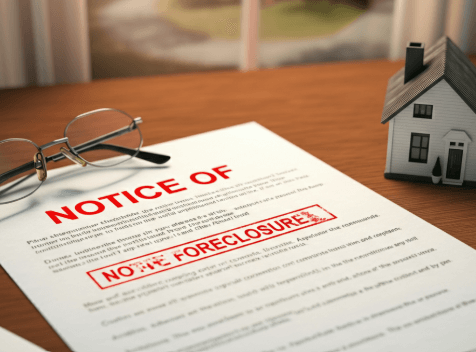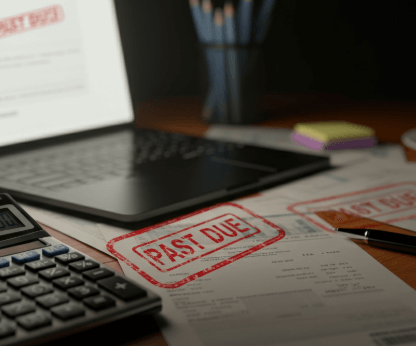Navigating the murky waters of homeownership in Florida can feel overwhelming, especially when confronted with the grim prospect of foreclosure. The critical issue of Missed Payments Before Foreclosure is at the heart of many foreclosure stories. This blog post aims to dissect the difficult journey of homeowners grappling with “Missed Payments Before Foreclosure” in Florida, outlining the legal implications, homeowner rights, and potential pathways to mitigate the crisis. Whether you’re a homeowner trying to navigate these troubled waters or an interested party looking to understand the complexities of foreclosure, this discussion provides valuable insights into avoiding the pitfalls associated with missed payments and foreclosure in the Sunshine State.
Steve Daria and Joleigh, seasoned real estate investors in the Florida market, share their insights on the importance of understanding the nuances of missed payments before foreclosure. They emphasize that proactive communication with lenders and seeking professional advice can often turn a potentially dire situation into a manageable one. Their experience underscores the critical need for homeowners to be informed and equipped with strategies to avoid falling into foreclosure.
The Foreclosure Process Explained
Foreclosure represents a critical juncture in the homeowner’s journey, often stemming from the inability to fulfill mortgage obligations outlined in the loan agreement. Initiated by the lender or mortgage holder, this legal process reclaims possession of the property.
While daunting, understanding the intricacies of the foreclosure process can empower homeowners to explore potential avenues for mitigation or resolution. Typically, foreclosure proceedings commence when a borrower falls behind on mortgage payments, triggering a series of notifications and warnings from the lender.

These notifications may include formal notices of default and opportunities for the borrower to remedy the situation through payment arrangements or loan modifications.
However, if the borrower fails to address the delinquency within the specified timeframe, the lender may take legal action to repossess the property.
The foreclosure process varies depending on jurisdiction and specific circumstances, but it follows a set timeline governed by state laws and regulations.
This timeline typically involves filing a lawsuit, notifying the borrower of legal proceedings, and ultimately conducting a foreclosure sale or auction to transfer property ownership.
Missed Payments Before Foreclosure: What You Need to Know
Understanding the threshold of missed payments before foreclosure is essential for homeowners facing financial difficulties.
In Florida, like many other states, the foreclosure process typically commences after a specific period of consecutive missed payments, normally ranging from three to six months.
This grace period allows homeowners to initiate communication with their lenders, explore potential solutions, and negotiate modifications to their mortgage agreements.
Stage 1: Missed Payments
The first missed payment marks the start of a critical period.
Lenders usually offer a grace period, typically 15 days.
If payment isn’t received within this timeframe, a late fee is assessed, and if it exceeds 30 days, the unpaid amount is reported to credit bureaus.

Stage 2: Pre-Foreclosure
After two to three missed payments, lenders typically initiate the pre-foreclosure phase.
During this period, communication between the homeowner and lender is crucial.
Lenders may offer loan modification, forbearance, or a repayment plan to help the homeowner avoid foreclosure.
Stage 3: Notice of Default
Following three to six months of unpaid amount, the lender drops a Notice of Default (NOD), indicating that the loan is in arrears.
This notice is also recorded with the county clerk, marking the official start of the foreclosure process.
Stage 4: Foreclosure Auction
If the debt is not settled or arrangements are made, the lender may schedule a foreclosure auction to sell the property to recover the outstanding loan balance.
Get An Offer Today, Sell In A Matter Of Days…
Strategies to Prevent Foreclosure
Foreclosure is not inevitable, even after missed payments. Here are several strategies homeowners can employ:
Communication with Lender
Early and transparent communication with your lender can open up various avenues to avoid foreclosure, including loan modifications, forbearance, or short sales.
Refinancing
Depending on your credit score and home equity, refinancing might offer more favorable mortgage terms and prevent foreclosure.
Government Assistance
Options like the Home Affordable Modification Program (HAMP) can provide the necessary support to keep your home.
Legal Counsel
Getting advice from an attorney specializing in real estate or foreclosure can provide legal avenues to delay or avoid losing your home.
Tips for Managing Missed Payments
If you’re facing missed payments in Florida, understanding your options early can significantly mitigate the risk of foreclosure.
Engaging with your lender for a possible payment plan modification or exploring legal advice can provide viable paths to manage and overcome this financial hurdle.
Prioritize Your Spending
Prioritize your mortgage payment over other non-essential expenses.
Explore Alternative Income Sources
Consider side jobs or freelance work to supplement your income.
Cut Costs
Review your monthly expenditures and reduce unnecessary spending.
Seek Financial Advice
A financial advisor can offer personalized strategies to manage debt and avoid further missed payments.
Frequently Asked Questions
Explore answers to common queries about navigating the complexities of missed payments and foreclosure proceedings in Florida.
How long does the foreclosure process take in Florida?
The timeline can vary significantly but generally ranges from 180 days to a year, depending on the court schedule and any defenses the homeowner raises.
Can I save my home after receiving a Notice of Default?
Yes, it’s possible. Lenders are often open to negotiation even after issuing an NOD, especially if the homeowner presents a viable plan to catch up on missed payments.
Does foreclosure immediately affect my credit score?
Missed payments are documented by credit bureaus after 30 days, negatively affecting your credit score. Foreclosure damages your credit and can remain on your report for up to seven years.
Are there any tax implications if my debt is forgiven?
Yes, forgiven debt may be considered taxable income.
However, under certain circumstances and specific programs, you may be exempt. It’s advisable to consult with a tax professional.
Conclusion
The period leading to foreclosure is fraught with anxiety for homeowners, but understanding the process of missed payments before foreclosure is the first step in navigating this challenging situation. Proactive measures, open communication with lenders, and exploring all available options can provide a path to managing or avoiding foreclosure. Remember, each missed payment is an opportunity to seek solutions and prevent the escalation to foreclosure, preserving your financial stability and home ownership.
This comprehensive guide aims to provide homeowners, real estate investors, and financial advisors with the knowledge and tools to understand and manage the process surrounding missed payments before foreclosure. Whether you’re in Florida or elsewhere, the principles of proactive communication, exploring financial assistance programs, and seeking professional advice remain universally applicable in avoiding the threshold of foreclosure.
**NOTICE: Please note that the content presented in this post is intended solely for informational and educational purposes. It should not be construed as legal or financial advice or relied upon as a replacement for consultation with a qualified attorney or CPA. For specific guidance on legal or financial matters, readers are encouraged to seek professional assistance from an attorney, CPA, or other appropriate professional regarding the subject matter.

